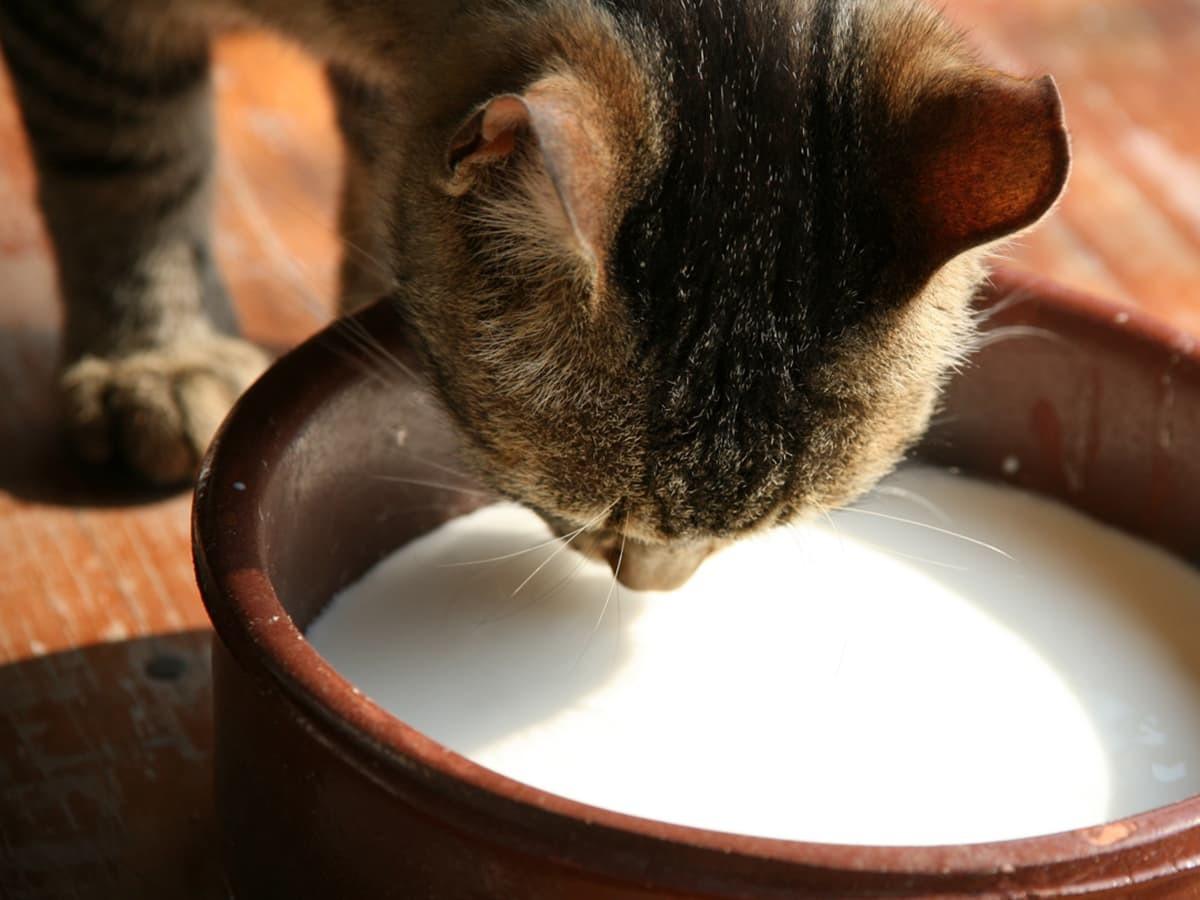We often see adorable images of kittens lapping up milk, but can cats drink milk as they grow into adults? Contrary to popular belief, most adult cats are lactose intolerant. This means they lack the enzyme needed to break down lactose, the sugar found in milk. While a few sips might not cause significant harm, offering milk regularly can lead to digestive issues.
Why Can't Cats Drink Milk? Understanding Lactose Intolerance
Kittens can easily digest their mother's milk because they produce an enzyme called lactase. Lactase breaks down lactose into simpler sugars that the body can absorb. However, as kittens are weaned and transition to solid food, their lactase production decreases. This decline in lactase leads to lactose intolerance.
When a lactose-intolerant cat drinks milk, the undigested lactose ferments in their gut, causing a range of unpleasant symptoms.
Is Milk Bad for Cats? Signs of Lactose Intolerance
If your cat is lactose intolerant, you might notice these signs after they consume milk:
Diarrhea
Gas
Bloating
The severity of these symptoms can vary from cat to cat. Some cats may experience mild discomfort, while others may have more severe reactions.
What Liquids Can Cats Drink?
Cats should only really drink one thing to stay hydrated - water. Despite popular belief, milk is not good for cats and it's best to steer clear of dairy.
What Milk is Safe for Cats?
If you want to offer your cat milk, there are some safer alternatives to cow's milk:
Lactose-Free Milk: This type of milk has lactose removed, making it easier for cats to digest.
Cat Milk: Specially formulated cat milk is available at pet stores. These products are often lactose-reduced and enriched with vitamins and minerals.
Goat Milk: Goat milk naturally has lower lactose content than cow's milk.
Even with these alternatives, moderation is key. Offer small amounts and monitor your cat for any signs of digestive upset.
Why Do Cats Love Milk?
If milk can cause problems, why do cats seem to love it? There are a few reasons:
Taste and Smell: Cats are attracted to the taste and smell of milk, particularly the fat content.
Positive Association: Cats may associate milk with the comfort and nurturing they receive from their mothers as kittens.
Can Cats Have Other Dairy Products?
It's best to avoid giving cats other dairy products like cheese or yogurt. These also contain lactose and can cause digestive issues in lactose-intolerant cats.
Expert Insights From Spot
As much as we love to share our favorite foods with our pets, it's important to remember that not all human foods are safe for dogs. Spot's internal data shows that pet insurance claims for dietary indiscretions in pets average $642*, underscoring the importance of caution and research before sharing snacks with our pets.
Conclusion
While the image of a cat happily lapping up a bowl of milk is a common one, the reality is that most adult cats can't tolerate milk well. Lactose intolerance is common in cats, and consuming milk can lead to digestive problems. Water should be your cat's primary source of hydration. If you choose to offer milk, opt for lactose-free options or specially formulated cat milk, and always provide it in moderation.

With 10 years of experience as a pet parent, I aim to empower pet owners with insights into pet insurance and maintaining their pet's well-being. I aspire to be a trusted source, combining knowledge with a commitment to the welfare of our beloved pets.
*Jan 2019 to April 2024 administrator claims data.
Are Cats Lactose Intolerant? (n.d.). In Zoetis Petcare. Retrieved October 4, 2024, from https://www.zoetispetcare.com/blog/article/are-cats-lactose-intolerant
Carbo-Johnson, K., & MS. (2024). Can Kittens & Cats Drink Milk? In Purina. https://www.purina.com/articles/cat/feeding/can-cats-eat/can-cats-drink-milk
Is Milk Actually Healthy for Cats to Drink? (n.d.). In The Spruce Pets. Retrieved October 4, 2024, from https://www.thesprucepets.com/can-cats-have-milk-552036
Mastrianna, L. (2024). What Can Cats Drink Besides Water? In Homeowner.com. https://www.homeowner.com/cats/what-can-cats-drink-besides-water
The Truth About Cats And Milk. (n.d.). In Hill’s Pet Nutrition. Retrieved October 4, 2024, from https://www.hillspet.com/cat-care/nutrition-feeding/is-milk-good-for-cats?lightboxfired=true
Vet Q&A: Can cats drink milk? (n.d.). In www.pdsa.org.uk. Retrieved October 4, 2024, from https://www.pdsa.org.uk/what-we-do/blog/vet-qa-can-cats-drink-milk
What Do Cats Drink & Is Milk Bad for Cats? (n.d.). In Purina. Retrieved October 4, 2024, from https://www.purina-arabia.com/articles/cats/feeding/guides/what-do-cats-drink
Why Do Cats Love All Dairy Products? in Charlottesville, VA. (n.d.). In Charlottesville Cat Care Clinic. Retrieved October 4, 2024, from https://cvillecatcare.com/veterinary-topics/why-do-cats-love-all-dairy-products/
The information presented in this article is for educational and informational purposes only and does not constitute or substitute for the advice of your veterinarian.












